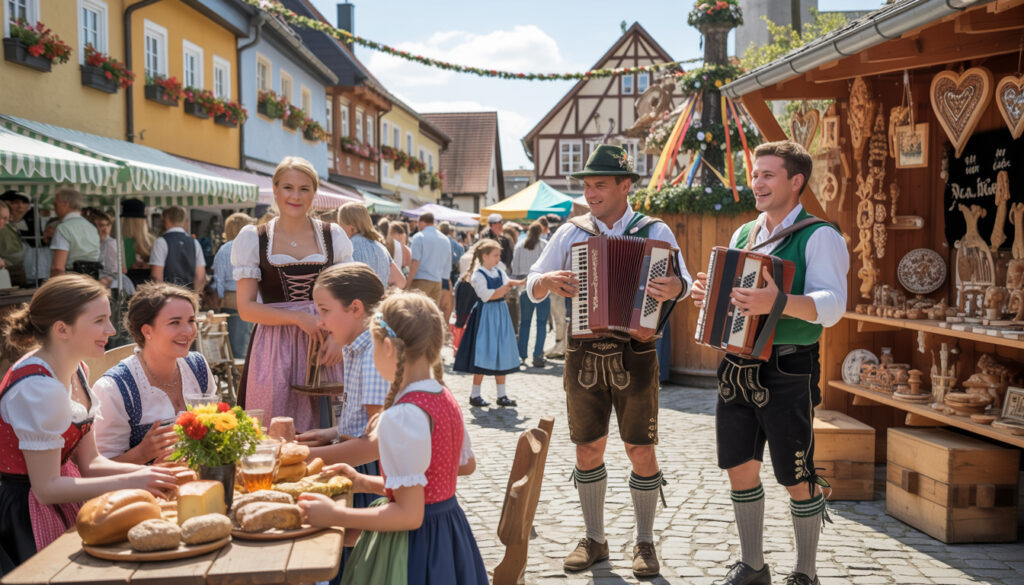While Oktoberfest is undoubtedly Germany’s most famous festival, the country boasts an array of vibrant, lesser-known festivals and traditions that beautifully showcase its rich cultural tapestry beyond the popular beer tents in Munich.
One such celebration is the Rosenheim Herbstfest, Bavaria’s third largest folk festival after Munich and Rosenheim’s own version of Oktoberfest. Held annually from late August to mid-September, it features traditional costume parades, fairground rides, lively music, and a spectacular fireworks display. Its family-friendly atmosphere and moderate prices make it a charming alternative to the bigger events.
In Dachau, the Dachau Volksfest continues a tradition dating back over 350 years with its roots in historic horse races. Taking place in early August, it offers myriad attractions including shooting contests, gymnastics displays, and exhibitions complemented by popular marquees and fairground rides. Notably, it maintains a reputation for affordable beer prices and lively communal spirit.
Hamburg’s DOM Festival, held three times a year—winter, spring, and summer—is the largest public festival in Northern Germany with a history since the 11th century. It stretches across a 1.6 kilometre fairground lined with rides, performance acts, food stalls, and cosy bars where visitors can enjoy anything from mulled wine in winter to beer and cocktails in summer. Its appeal spans generations, perfect for families and thrill-seekers alike.
For those enchanted by medieval traditions, the Kaltenberg Knights’ Tournament near Munich is a unique festival held in July that revives the grandeur of jousting tournaments. This event draws crowds eager to witness knights in armour competing in skill and spectacle amid an immersive historical setting.
On the cultural frontier, the Rhine in Flames festival is another gem featuring spectacular fireworks over the Rhine River accompanied by music and celebrations in towns like Bingen and Rüdesheim. It typically takes place in early July and offers a magical ambience blending natural beauty with exuberant festivities.
Additionally, cities like Nuremberg, Frankfurt, and Berlin host colourful summer and autumn folk festivals filled with vibrant costumes, parades, and live music, each reflecting its regional flavour and history.
These lesser-known festivals present travelers with an opportunity to experience the authentic warmth and diversity of German folk culture away from the crowds of Oktoberfest. Whether it’s historic pageantry, seasonal markets, or festive fairs, Germany’s calendar is packed with traditions that celebrate community, heritage, and joy throughout the year.
Exploring beyond Oktoberfest reveals a richer, more nuanced picture of Germany’s cultural heartbeat.

